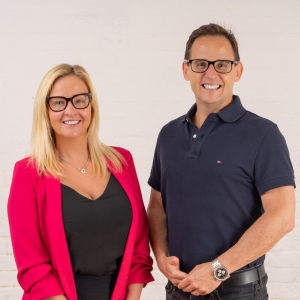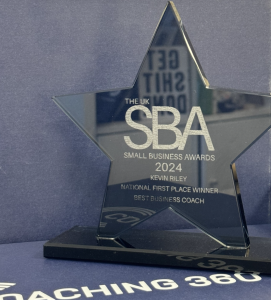Hiring a business coach can be a game-changer or a complete waste of money.
The difference lies in savvy choice and ultimately, fit.
A great coach doesn’t just motivate you; they bring systems, perspective, and accountability that enable real growth.
But with over half million self described and unregulated “coaches” out there, how do you know who’s right for you and how to avoid the wrong one?
At Coaching 360, we speak daily with business owners who’ve outgrown their current stage and are ready for more structure, focus, and profit.
Here’s how to find a business coach that can take you there.
1. Match the Coach to Your Stage of Growth
Not all coaching is created equal.
Start by identifying where your business really is right now.
-
Startup / Early growth: You’ll want a coach who helps build foundations — systems, processes, clarity of offer, and time management.
-
Scaling / Established: Look for someone experienced in team leadership, delegation, KPIs, and accountability structures. A Scaling Up Certified Business Coach is a perfect choice here.
-
Mature / Plateaued: You need a strategic facilitator who can realign your board or leadership team and reignite growth.
➡️ Pro Tip: Ask, “What kind of businesses have you coached recently?”
Their answer should sound like your story but don’t be disheartened if there’s not direct industry experience.
2. Check Real-World Experience, Not Just Certifications
Anyone can print a certificate or attend an online course. Few have built and scaled real businesses.
The best business coaches have walked the path and they’ve felt the sleepless nights, the cashflow squeezes, the leadership dilemmas.
They can spot problems before you do because they’ve been there.
At Coaching 360, our coaches are seasoned business owners themselves. Kevin Riley, for example, grew a travel company to £20 million turnover, Co-Founded a succesful Virtual Assistant Services Provider and has grown Coaching 360 to be one of the most successful business coaching firms in the UK.
Look for a coach with both scar tissue and success stories. They’ll guide you from hard-won experience, not theory.

3. Understand Their Framework or Methodology
If a coach can’t explain how they coach, run.
Effective coaching isn’t random, it’s not a vibe and it follows a structure. Ask what frameworks they use and how progress is measured.
At Coaching 360, we use proven systems like ActionCOACH, Scaling Up, DISC, and Wealth Dynamics to bring clarity, alignment, and accountability across every part of your business.
In addition to our experience, interpretation of the latest business trends and applied ongoing learning, these frameworks ensure each session moves you closer to tangible results.
4. Prioritise Chemistry and Challenge
Chemistry matters. You’ll spend months, and sometimes years working closely with your coach.
You need someone who listens deeply, challenges your assumptions, and asks the uncomfortable questions others avoid. If the first conversation feels like a sales pitch, not a partnership, that’s your red flag.
Good coaching isn’t always comfortable.
The right coach will enable you to see blind spots and call you out when needed, not sugar-coat the truth to prevent you from pulling your retainer.
5. Look for Measurable ROI, Not Motivation
Motivation fades. Systems last.
A credible coach will track progress through clear KPIs: revenue, profit, team performance, time regained — and hold you accountable to results.
Ask them how they measure success. If they can’t show a framework for ROI, be cautious.
At Coaching 360, our programmes are built on measurable outcomes. Whether it’s increasing profit margins, freeing up 10 hours a week, or aligning your senior team, progress is always tracked and we also offer a return-on-investment guarantee.

6. Beware of Common Red Flags
-
Overpromising “overnight results”
-
Vague or unstructured sessions
-
No client references or case studies
-
Too much focus on theory, not execution
-
No accountability for outcomes
A good coach doesn’t tell you what you want to hear, they enable you with the clarity of how to execute what you need to do next.
7. Questions to Ask Before You Commit to Business Coaching
-
What size and type of businesses do you usually coach?
-
How do you measure success?
-
What frameworks or tools do you use?
-
How do you hold clients accountable?
-
Can you share examples of client results?
The right business coach can change everything. That isn’t just your business, but your quality of life. The right fit depends on your stage, goals, and mindset.
If you’re a business owner ready to scale, regain control of your time, and build a business that gives you more life, not less — let’s talk.
👉 Get in touch with our team today and find out which Coaching 360 programme best fits your stage of growth.

